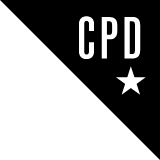Peter Kellner: use opinion polls as ‘analysis not just ammunition’
Former YouGov chair Peter Kellner on the dangers of trying to govern by focus groups, lessons for organisations launching new products, and how Keir Starmer can turn his poll ratings around.
In 1945, a Gallup poll published on the morning of the general election had Labour’s Clement Atlee six points ahead of Conservative prime minister Winston Churchill.
It was the first time that opinion polls had been used to predict the outcome of an election on these shores, but there was understandable scepticism given that Churchill had just led Britain to victory in the second world war.
Yet the poll accurately predicted Labour would win 47% of the vote and form a new government. Even though Gallup overestimated the Tory turnout by four points, the result made Westminster sit up and take notice. Polling would soon become an essential tool for every politician and political party.
“Polling at its simplest is finding out what people think on any debate and roughly what the numbers are on each side. It is a way of listening to the public,” says Peter Kellner, one of the UK’s best-known and respected psephologists.
“But the other part of it is politicians wanting to use the data to achieve their own electoral goals. These two things, understanding the public and working out how to take most advantage, should be very closely allied,” he adds.
“The trouble is, and this doesn’t just apply to politics, but also to campaigning groups and companies launching new products, they're not actually interested in understanding for its own sake. They're simply interested in what words or slogans will work.”
Peter Kellner polling supremo
Kellner enjoyed a 30-year long career a national newspaper journalist, and during that time he became increasingly focused on and fascinated by elections, polling and data. In 2000, he was approached to join a new company called YouGov as an advisor. Kellner instantly became its public face and was made chair in 2001.
Although he left YouGov in 2016 he continues to consult, commentate and crunch the numbers. Kellner believes that an opinion poll should be used for ‘analysis not just ammunition’. He uses the example of last year’s general election and how some of the promises in Labour’s manifesto exposed the danger of trying to govern by focus group when that comes face to face with reality.
“Through very sensitive polling and focus groups they decided to take a tough line on immigration, a tough line on Europe, and promised no tax rises in terms of income tax or national insurance,” he says.
“Speaking with my polling hat on, the impression I get is that the people advising Starmer were keen on those policies and found polling evidence to support them. Now, I'm not saying they cynically twisted it, but they knew what they wanted, knew what they were looking for, and they found it.
“Had they been looking for something else, it might have shaped their research programme slightly differently and they would have come up with different conclusions. That’s me speaking with my polling hat on.
“My own personal view is that I think one of the reasons why Labour is now in trouble is that it planned for the election but not for government. It said things which it believed would give the party a big majority. That may well have been right but it’s debatable.
“I'm not accusing anybody of any form of dishonesty or deliberate distortion, but you can see how the wish was father to the thought and that can leave you in a place you’d rather not be and that’s actually made it much harder to be an effective government.”
Turning Keir Starmer's approval ratings around
Indeed, shortly after our conversation a YouGov poll put the Reform Party ahead of Labour. While Labour’s huge majority was as much a product of an electorate who simply wanted to see the Tories ousted, Starmer’s dismal approval ratings again emphasis the perils of saying what people want to hear.
So, if he suddenly received a call from the current prime minister to try arrest that slump in the polls what would Kellner do next?
“I would separate it out into two different things, each one run by different people. One is to seriously probe what is going on in Britain and have an open-ended inquiry, in the sense of having no preconceived notions around the issues. What do we need to know about what people think? What are the different things the electorate is saying to us?
The other part is the marketing side, where you would be mimicking a company selling a new line of baked beans. What colour should the tin be? What phrases work or don't work? What typeface would you use? So, it would be much the same as when that company wants to change a product or launch a new one and they go to the advertising agency.
“Ultimately, you need to separate the understanding function of government and the marketing function of government. Both are legitimate but what you mustn't do is mix them up when it comes to understanding public opinion.”
With an increasingly fractionalised electorate, some of whom will have their opinions shaped by what they see and read on social media, polls also have a crucial role in helping to cut through the power of misinformation and whether views expressed on social media reflect that of the wider population.
“Sometimes people's views are based on simply false information. For example, the immigration piece among every political group and every demographic group, massively overstates the proportion of our immigrants who are asylum seekers, but that's because the boats have got all the publicity. So it's not surprising when people are asked about immigration, their first thought is the boats. Something like a third of asylum seekers that came here last year were Ukrainians. That's not what people had in mind when they thought about asylum seekers.”
Polling's influence
To further illustrate the point on immigration, until recently the public believed that a quarter of the UK population was born overseas - the real figure is closer to 14%.
“Polls, as long as they've done reasonably well, are a useful corrective against the misinformation coming from newspapers, candidates and party campaigns,” Kellner adds.
They can also be influential, for better or worse.
Kellner recalls the 1991 by-election in Ribble Valley when a poll revealed that the Labour candidate stood no chance of winning but the Lib Dems could oust the Tories with the support of Labour voters. The Lib Dems seized on this information and duly won the seat.
Kellner also recalls when parliament was recalled in 2013 because Syrian dictator Bashar al-Assad was using chemical weapons against his own people.
“The question was should Britain, America and other nations take military action against him? YouGov conducted a poll where we asked people whether they would support or oppose military action, and there was a two to one majority against. Now, no MP said ‘I read YouGov therefore I’m going to vote against it’, but a lot of MPs said it's important not to take military action unless there is public support.
MPs were getting letters that opposed taking action and they didn't know whether their post bag was representative of the wider public. So our poll, as it were, validated the uncertain accuracy of their post bag, and the government motion to take action was defeated by 13 votes. Cameron accepted that vote and Obama then pulled back and we didn't bomb Assad. I'm not sure that sequence of events served democracy or the people of Syria.
“But I'm sure our poll was right in the sense that it produced the right information about the mood of the British people at that moment on that issue.”

Ryan Herman is a journalist, author and editor. His latest book, And Finally… The Weird and Wonderful World of News, is out now from Pavilion Books.
Further reading
Research methods for employee communications
Is it time to retire the annual employee survey and really listen?
British politics in a time of change
The CIPR offers training to public affairs professionals and PR practitioners who needs an impartial, rigorous understanding of British politics in the 2020s. Find out more and book your place on the course.
.png_346b001a7105948b895436c029138788.png)
.png_0f7278855842d9d4461b97b1ec506a3a.png)


